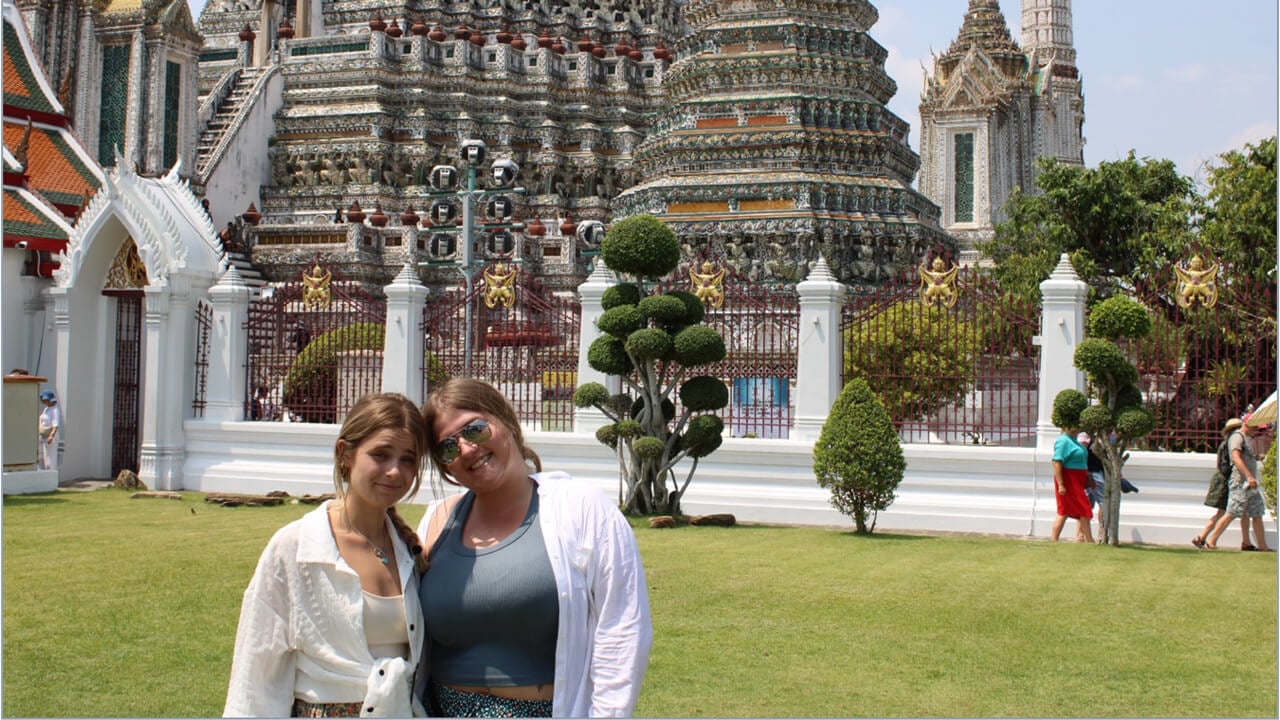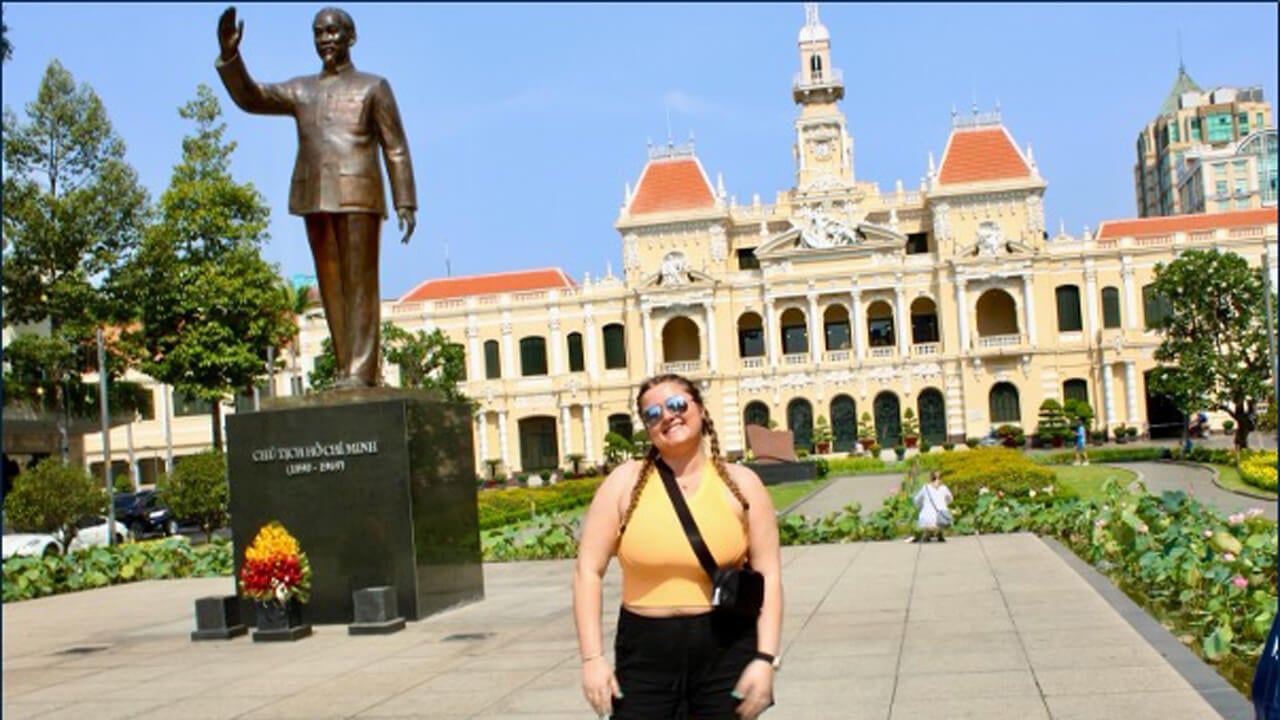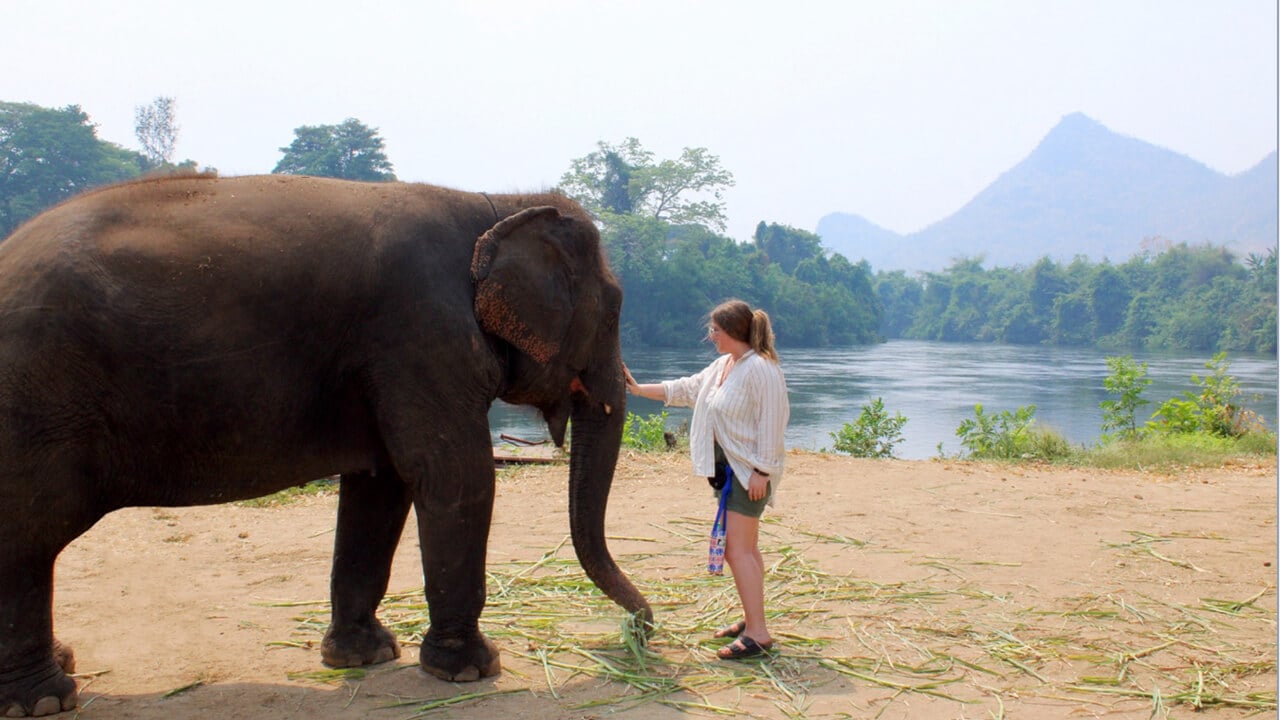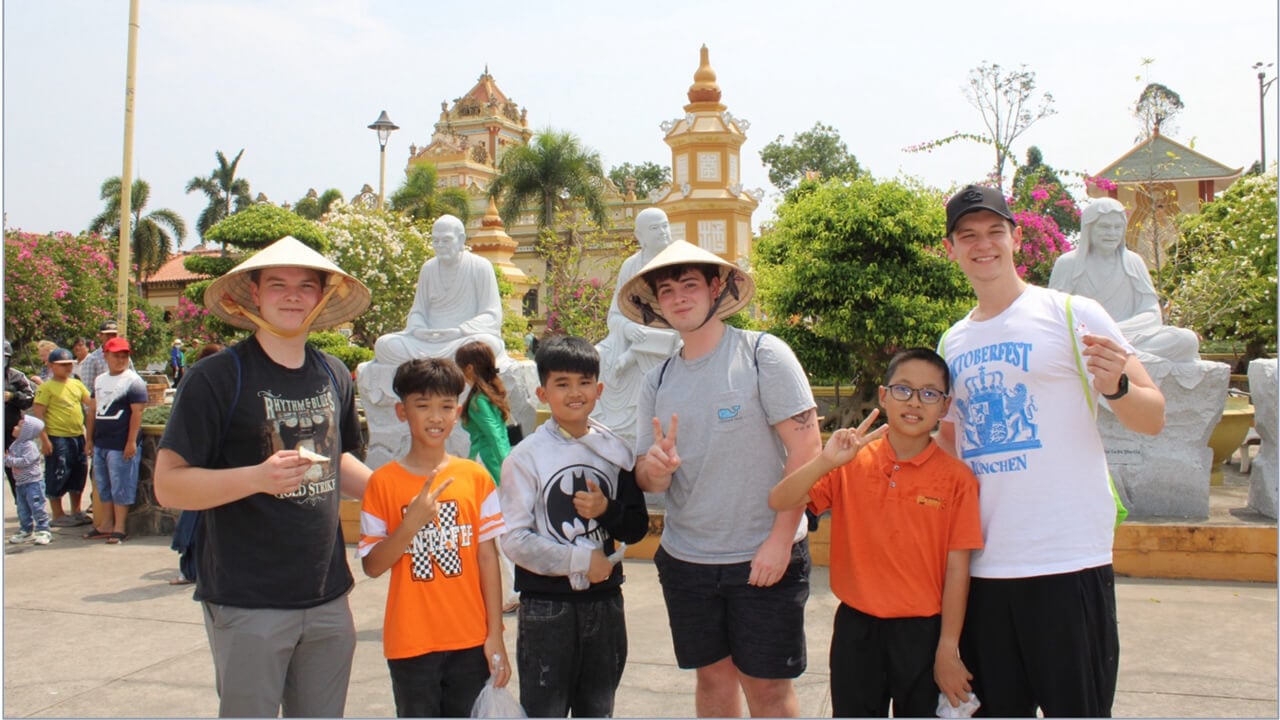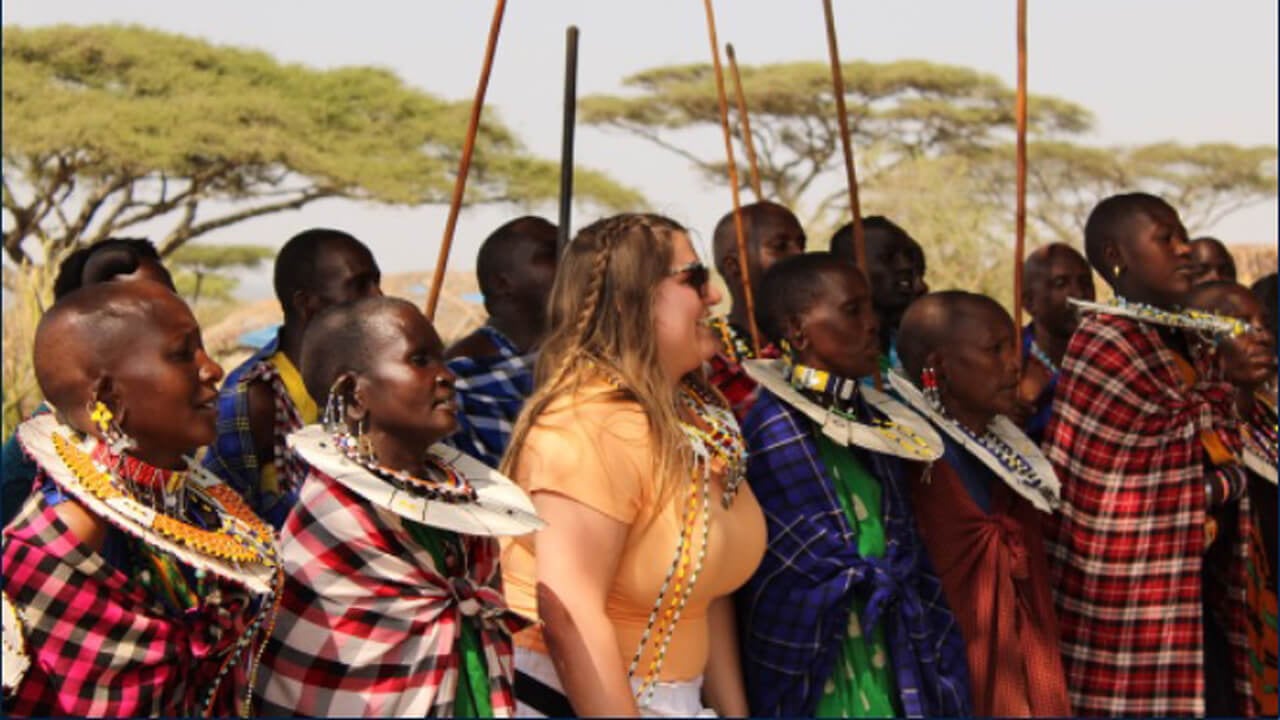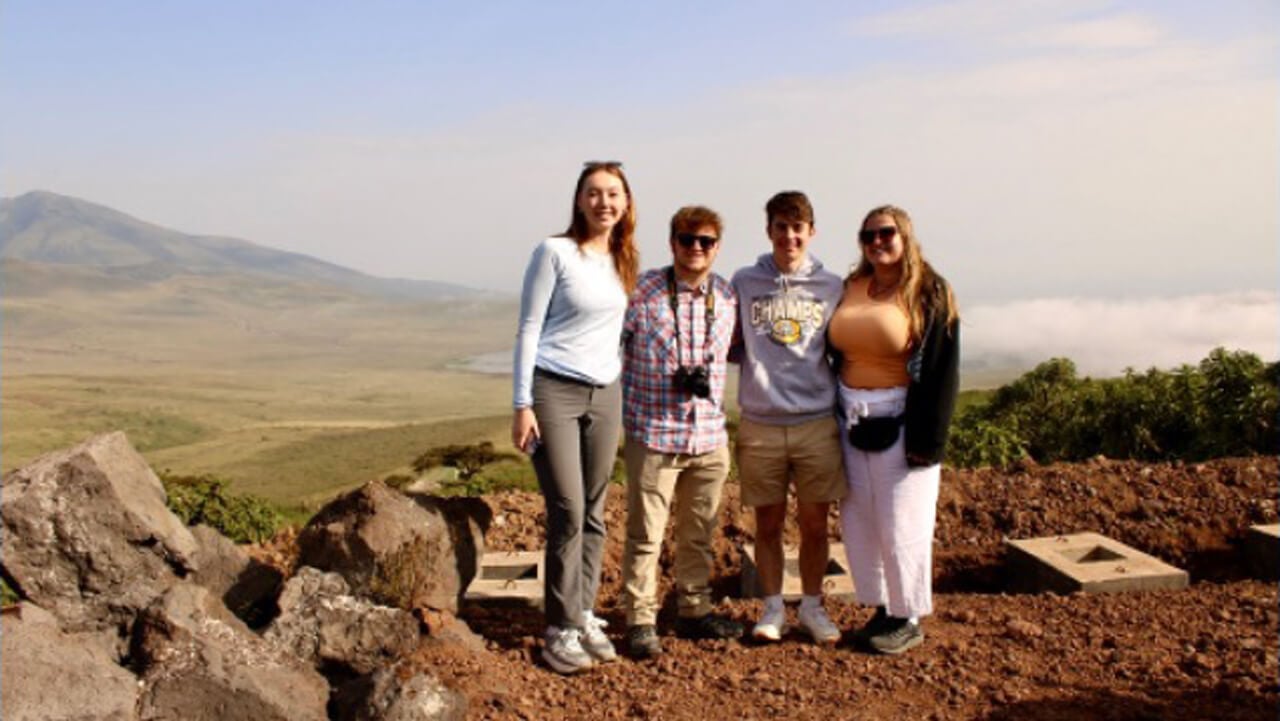
Global Education
Study Abroad: How an Immersive Experience Can Change Your Life
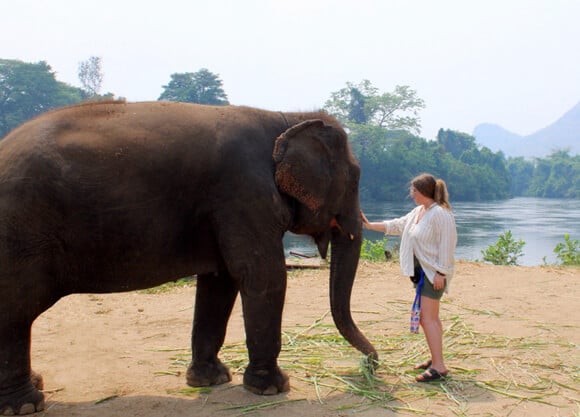
Global Education
Study Abroad: How an Immersive Experience Can Change Your Life
This project highlights cultural explorations in Thailand, Vietnam and Tanzania.
Overview
After having the opportunity to visit Vietnam, Thailand and Tanzania, Arianna J. Newth ‘24, MBA ‘25 highlights the way these trips have changed her life and view of the world.
Student Team

Arianna Jade Newth '24, MBA '25
International Business
School of Business
Study Abroad: How an Immersive Experience Can Change Your Life
Cultural Immersion & Self-Discovery
Studying abroad isn’t just about visiting new places—it’s about stepping outside of what’s familiar to embrace new ways of life. Immersing yourself in different cultures offers an opportunity to question assumptions, build empathy, and even discover aspects of yourself you never knew existed. Whether it’s learning local customs in Tanzania, experiencing Buddhist traditions in Thailand, or navigating the bustling streets of Ho Chi Minh City, each moment abroad shapes your understanding of the world—and your place in it.
Sustainability & Global Awareness
In Tanzania, sustainability was the core focus of our trip. We attended wildlife and conservation seminars and learned about long standing practices like bee keeping that keep the ecosystem healthy. We listened to rangers discuss conservation efforts and stayed on an eco-friendly campsite in the middle of the Serengeti. Most importantly, we learned about sustainable tourism practices, and how research and preservation efforts are what made our experience possible.
The Power of Learning Abroad
Studying in a foreign country extends far beyond the classroom. It’s about learning through experience—navigating unfamiliar customs, engaging with local communities, and gaining new perspectives that challenge the way we think. In Thailand, for example, visiting sacred temples and speaking with Buddhist monks offers a deep understanding of how religion shapes daily life. Observing these traditions firsthand fosters cultural awareness and transforms the way we see education itself.
Global Citizenship & Responsibility
Experiencing different cultures firsthand reveals how interconnected the world truly is, fostering a deeper sense of global citizenship. Engaging with diverse economies, political systems, and social movements builds awareness of the challenges communities face worldwide. Visiting the site of the Rwanda genocide trials, for example, offered a sobering reminder of the lasting impact of injustice and the importance of accountability. Witnessing these histories firsthand instills a responsibility to contribute to positive change, inspiring us to take action beyond borders.
The Power of Perspective
Seeing the world from multiple viewpoints challenges preconceived notions and broadens understanding. Whether discussing life with a local in Tanzania, learning about the effects of war in Vietnam, or observing the balance between tradition and modernity in Bangkok, every conversation and experience adds another layer to how we interpret the world. Perspective is one of the most powerful gifts of travel.
The Role of History in Shaping Identity
Each destination carries its own historical weight, influencing the way people live, work, and interact today. In Tanzania, learning about the Maasai tribe’s centuries-old customs offered insight into how tradition shapes not just identity, but resilience in the face of modernization. Meanwhile, standing at the site of the Rwanda genocide trials in Arusha brought history into sharp relief—revealing how justice, remembrance, and reconciliation are active forces in shaping national and personal narratives. Whether through ancient rituals or modern reckonings, history provides a powerful lens through which we come to better understand both ourselves and the communities we encounter.
Breaking Barriers & Building Connections
In the Serengeti, I found myself at a tiny bush plane airport, where a group of workers sat in the shade playing cards. I joined them, unsure of the rules and unable to speak their language—but it didn’t matter. Through laughter, gestures, and shared focus, we connected beyond words. Experiences like this, along with long bus rides across Asia full of conversation and cultural exchange, showed me that connection doesn’t rely on fluency. It lives in openness, presence, and a willingness to meet people where they are.
Food as a Cultural Experience
Meals aren’t just about eating—they’re about storytelling, tradition, and connection. During our study abroad trip, we took a cooking class in Bangkok, tracing the roots of tom yum soup, pad thai, and mango sticky rice to the memories and struggles of those who make them. Each bite wasn’t just food; it was an invitation into a culture’s soul. Cooking and tasting together, food became more than sustenance—it wove us into a story far greater than our own.
Religious & Spiritual Exploration
Experiencing different religious traditions firsthand unlocks new perspectives on spirituality, belief systems, and self-reflection. Stepping into Buddhist temples in Thailand and Vietnam reshaped my understanding of religion. Our guide not only shared his culture’s prayers but invited us to partake in them, bridging worlds through ritual and reverence. There’s something profoundly sacred about connecting with another’s faith—feeling the weight of centuries-old traditions, the quiet power of devotion. Learning about spiritual practices so different from my own didn’t just expand my knowledge—it transformed my perspective.
The Meaning of Home
Spending time away from home reshaped how I understand it. Home became less about a specific place and more about a sense of belonging. It’s found in the people we connect with, the comfort we create, and the way we settle into the unfamiliar. Studying abroad reminded me that home isn’t fixed—it can exist in many forms, anywhere in the world. That’s a big part of why I love to travel. I’ve visited 25 countries so far, and I have no plans of stopping—because with the right mindset, home is something we make, not just somewhere we return to.
Project Photographs
For Further Discussion
This serves as an overview of the project and does not include the complete work. To further discuss this project, please email Arianna Jade Newth.
Explore Our Areas of Interest
We've sorted each of our undergraduate, graduate and doctoral programs into unique Areas of Interest. Explore these categories to discover which programs and delivery methods best align with your educational and career goals.

